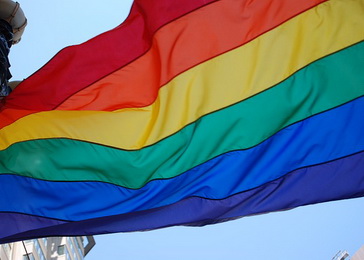 In Serbia there is no systemic discrimination; however, there are nine groups that are most vulnerable and the LGBT community is one of them, this was stated at the “Creation of Tolerance and Understanding towards the LGBT Community in Serbian Society” panel which was held on 10 February.
In Serbia there is no systemic discrimination; however, there are nine groups that are most vulnerable and the LGBT community is one of them, this was stated at the “Creation of Tolerance and Understanding towards the LGBT Community in Serbian Society” panel which was held on 10 February.
Kristina Todorović, the representative from the Lawyers’ Committee for Human Rights, said that one of the most important mechanisms for the protection of the LGBT community would be the adequate penal policy and application of the Article 54 which refers to hate crimes.
Jovana Stopić, Advisor in the Belgrade Centre for Human Rights said that members of the LGBT community rarely report the acts of violence towards them to the civil society organisations and even fewer are reported to the relevant institutions and added that the main priority of the LGBT community was the issue of personal safety. According to her, surveys showed that a large number of members of the LGBT community was subjected to some type of violence, 70% to verbal and psychological, and 20% to physical violence.
The Round Table, organised by the Office for Human and Minority Rights and the Ministry of Foreign Affairs of Norway, was realised under the “Creation of Tolerance and Understanding towards the LGBT Community in Serbian Society” project.
At the “Advance training for working with sexual and gender minorities and their families in the social welfare system” conference held on the same day, Aleksandar Prica, representative of the organisation Duga (Rainbow), said that, one lawyer, one social worker, and one psychologist from every local self-government unit had successfully completed the training for social welfare system employees on how to work with sexual minorities.
Suzana Paunović, the Director of the Office for Human and Minority Rights, said that the aim of the training had been to raise awareness of tolerance towards sexual minorities, that most activities had been created for engaging young people, and that the most important fact was that the programme had involved even the undeveloped local areas thus covering the entire country.
Tatjana Grnčarski, the Director of the Provincial Institute for Social Protection, said that the Institute would support and advocate professional treatment of minorities, and the eradication of prejudice against sexual minorities if they existed in the centres for social protection.
Source: Beta, taken from www.euractiv.rs
 Government of the Republic of Serbia
Government of the Republic of Serbia















 pdf [271 KB]
pdf [271 KB]
Leave a Comment